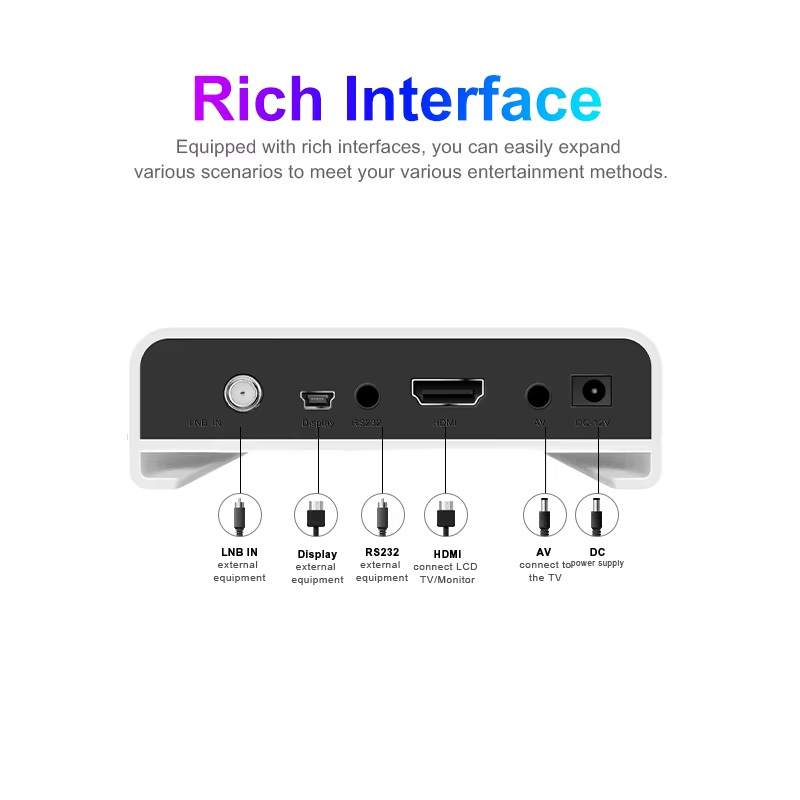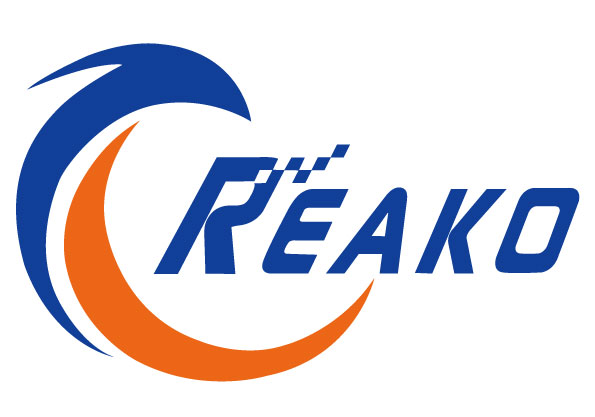The satellite television and broadcasting industry has evolved dramatically with the introduction of advanced digital standards, making the selection of a reliable mini DVB-S2 receiver supplier crucial for businesses seeking high-quality signal reception and distribution solutions. Modern enterprises require compact, efficient, and technologically advanced satellite receivers that can handle multiple broadcasting standards while maintaining exceptional performance in various operational environments. The decision to partner with the right supplier directly impacts your business operations, customer satisfaction, and long-term profitability in an increasingly competitive market landscape.
Understanding DVB-S2 Technology and Market Demands
Evolution of Digital Video Broadcasting Standards
Digital Video Broadcasting Satellite Second Generation represents a significant advancement in satellite communication technology, offering enhanced spectral efficiency and improved error correction capabilities compared to its predecessors. This technology enables broadcasters and service providers to deliver high-definition content with superior signal quality while optimizing bandwidth utilization. The mini DVB-S2 receiver format has gained substantial traction due to its compact design and robust functionality, making it ideal for various applications ranging from residential installations to commercial broadcasting systems.
The technical specifications of modern DVB-S2 systems include support for multiple modulation schemes, advanced forward error correction, and adaptive coding mechanisms that automatically adjust to varying signal conditions. These features ensure consistent performance across different geographical locations and weather conditions, which is particularly important for businesses operating in challenging environments. The miniaturization of these receivers has made them increasingly popular for space-constrained installations without compromising on performance or functionality.
Market Growth and Business Opportunities
The global satellite receiver market has experienced substantial growth, driven by increasing demand for high-definition content, direct-to-home services, and commercial broadcasting applications. Businesses entering this market require reliable suppliers who can provide consistent product quality, technical support, and competitive pricing structures. The rise of streaming services and over-the-top content delivery has created new opportunities for satellite receiver manufacturers and distributors to expand their market presence.
Industry analysts predict continued expansion in the satellite communication sector, particularly in emerging markets where traditional broadcasting infrastructure may be limited. This growth trajectory presents significant opportunities for businesses that establish partnerships with reputable mini DVB-S2 receiver suppliers early in the market development cycle. Companies that position themselves strategically with reliable suppliers can capitalize on these emerging opportunities while building sustainable competitive advantages.
Critical Factors in Supplier Selection Process
Technical Specifications and Performance Standards
When evaluating potential suppliers, businesses must thoroughly assess the technical specifications and performance capabilities of their mini DVB-S2 receiver products. Key considerations include signal sensitivity thresholds, frequency range coverage, output resolution capabilities, and compatibility with various satellite systems and conditional access modules. Superior suppliers provide detailed technical documentation, performance benchmarks, and certification compliance information that enables informed decision-making.
The importance of selecting receivers with robust build quality cannot be overstated, as these devices often operate in demanding environments with varying temperature ranges, humidity levels, and electrical conditions. Reliable suppliers implement comprehensive quality control processes, use high-grade components, and conduct extensive testing procedures to ensure their products meet stringent industry standards. This attention to quality directly translates to reduced maintenance costs, lower failure rates, and improved customer satisfaction for your business operations.
Manufacturing Capabilities and Supply Chain Management
A supplier's manufacturing capabilities significantly impact product availability, customization options, and delivery timelines for your business requirements. Leading suppliers maintain modern production facilities with automated assembly lines, sophisticated testing equipment, and quality assurance protocols that ensure consistent product output. The ability to scale production volumes based on market demand fluctuations is crucial for maintaining steady inventory levels and meeting customer commitments.
Supply chain management expertise becomes particularly important when dealing with global markets and varying regulatory requirements across different regions. Experienced suppliers have established relationships with component manufacturers, logistics providers, and regulatory bodies that facilitate smooth operations and minimize potential disruptions. This comprehensive approach to supply chain management translates to better product availability, competitive pricing, and reliable delivery schedules for your business needs.

Quality Assurance and Certification Requirements
International Standards Compliance
Reputable mini DVB-S2 receiver suppliers maintain compliance with international quality standards and certification requirements that validate their products' safety, performance, and environmental compatibility. These certifications include CE marking for European markets, FCC approval for North American distribution, and various regional certifications that enable global market access. Compliance with these standards demonstrates a supplier's commitment to quality and regulatory adherence.
The certification process involves rigorous testing procedures conducted by accredited laboratories that evaluate electromagnetic compatibility, safety standards, and performance specifications under various operating conditions. Suppliers who invest in comprehensive certification programs provide businesses with confidence in product quality and regulatory compliance, reducing potential legal and operational risks associated with non-compliant products. This investment in certification also facilitates market entry in regulated jurisdictions where compliance is mandatory.
Quality Control Processes and Testing Procedures
Advanced quality control processes encompass multiple stages of production, from incoming component inspection to final product testing and packaging verification. Leading suppliers implement statistical process control methodologies, automated testing equipment, and comprehensive documentation systems that track product quality metrics throughout the manufacturing cycle. These processes ensure consistent product performance and enable rapid identification and correction of potential quality issues.
Environmental testing protocols simulate real-world operating conditions including temperature cycling, humidity exposure, vibration resistance, and electrical stress testing to validate product durability and reliability. Suppliers who conduct comprehensive environmental testing provide products with proven performance capabilities under challenging conditions, reducing field failure rates and warranty claims that can negatively impact your business reputation and profitability.
Technical Support and After-Sales Service Excellence
Engineering Support and Product Development
The availability of comprehensive technical support services distinguishes exceptional suppliers from basic product vendors in the mini DVB-S2 receiver market. Professional suppliers maintain experienced engineering teams who provide pre-sales consultation, system integration guidance, and ongoing technical assistance throughout the product lifecycle. This support includes detailed installation procedures, configuration recommendations, and troubleshooting assistance that reduces implementation time and costs.
Collaborative product development opportunities enable businesses to work with suppliers on customized solutions that address specific market requirements or unique application needs. Forward-thinking suppliers invest in research and development capabilities that allow them to adapt existing products or develop new solutions based on customer feedback and market trends. This collaborative approach creates competitive advantages for businesses that can offer differentiated products in their target markets.
Training Programs and Documentation Resources
Comprehensive training programs and detailed documentation resources enable businesses to effectively sell, install, and support mini DVB-S2 receiver products in their respective markets. Professional suppliers develop structured training curricula that cover technical specifications, installation procedures, configuration options, and troubleshooting methodologies for their product lines. These educational resources reduce the learning curve for sales and technical personnel while improving customer service capabilities.
Multi-format documentation including printed manuals, video tutorials, interactive guides, and online knowledge bases accommodates different learning preferences and provides convenient reference materials for field personnel. Suppliers who invest in comprehensive documentation and training resources demonstrate their commitment to partner success and long-term relationship development, which translates to improved business performance and customer satisfaction levels.
Cost Considerations and Value Proposition Analysis
Total Cost of Ownership Evaluation
Effective supplier evaluation extends beyond initial purchase prices to encompass total cost of ownership considerations including product reliability, maintenance requirements, warranty coverage, and support costs. Premium suppliers may command higher initial prices but deliver superior value through reduced failure rates, extended warranty periods, and comprehensive support services that minimize operational costs over the product lifecycle.
Businesses must evaluate the financial impact of product reliability on their operations, considering factors such as field service costs, replacement expenses, and potential revenue losses associated with equipment failures. Reliable suppliers provide detailed reliability data, warranty terms, and service level agreements that enable accurate total cost of ownership calculations. This comprehensive approach to cost analysis ensures optimal purchasing decisions that maximize long-term profitability.
Pricing Structure and Payment Terms
Transparent pricing structures and flexible payment terms facilitate effective budget planning and cash flow management for businesses operating in the satellite receiver market. Professional suppliers offer volume-based pricing tiers, seasonal promotions, and early payment incentives that help businesses optimize their procurement costs. Clear pricing documentation eliminates surprises and enables accurate project cost estimation for customer quotations.
Flexible payment terms including extended payment periods, progress billing options, and financing arrangements can significantly improve cash flow management for growing businesses. Suppliers who understand the financial challenges faced by their partners often provide creative payment solutions that enable business growth while maintaining healthy supplier relationships. These financial partnerships contribute to mutual success and long-term business sustainability.
FAQ
What are the key technical specifications to consider when selecting a mini DVB-S2 receiver supplier?
When evaluating mini DVB-S2 receiver suppliers, focus on signal sensitivity ratings, frequency range coverage, output resolution capabilities, and compatibility with various conditional access systems. Additionally, consider the receiver's support for HEVC encoding, multiple satellite positions, and advanced features such as blind scan functionality. Reliable suppliers provide comprehensive technical specifications and performance benchmarks that enable informed decision-making for your specific application requirements.
How important is certification compliance for satellite receiver products?
Certification compliance is crucial for market access and regulatory adherence in the satellite receiver industry. Products must meet CE marking requirements for European markets, FCC approval for North American distribution, and various regional certifications for global market access. Non-compliant products can result in legal issues, market entry restrictions, and potential safety concerns that negatively impact business operations and reputation.
What level of technical support should I expect from a professional supplier?
Professional suppliers provide comprehensive technical support including pre-sales consultation, installation guidance, configuration assistance, and ongoing troubleshooting support. Expect access to experienced engineering teams, detailed documentation resources, training programs, and responsive customer service channels. Quality suppliers also offer collaborative product development opportunities and customization services to address specific market requirements.
How do I evaluate the total cost of ownership for satellite receiver products?
Total cost of ownership evaluation should include initial purchase prices, installation costs, maintenance requirements, warranty coverage, support expenses, and potential revenue impacts from equipment failures. Consider product reliability data, mean time between failures statistics, and supplier service level agreements when calculating long-term costs. Premium suppliers often provide superior value through reduced failure rates and comprehensive support services that minimize operational expenses over the product lifecycle.
Table of Contents
- Understanding DVB-S2 Technology and Market Demands
- Critical Factors in Supplier Selection Process
- Quality Assurance and Certification Requirements
- Technical Support and After-Sales Service Excellence
- Cost Considerations and Value Proposition Analysis
-
FAQ
- What are the key technical specifications to consider when selecting a mini DVB-S2 receiver supplier?
- How important is certification compliance for satellite receiver products?
- What level of technical support should I expect from a professional supplier?
- How do I evaluate the total cost of ownership for satellite receiver products?


